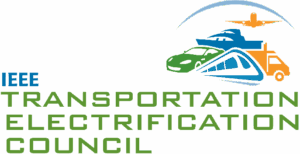Women in Transportation (WITEC)
Mission & Vision
Our goal is to facilitate the recruitment and retention of women in technical disciplines globally. We envision a vibrant community of IEEE women and men collectively using their diverse talents to innovate for the benefit of humanity.
Pledge
IEEE WIE pledges to work towards gender-diversified panels at all IEEE meetings, conferences, and events, including our own.
About WiTEC
- Recognize the outstanding achievements of the Transportation Electrification Community.
- Organize WiTEC workshops and encourage gender-diverse panels at major TEC and partner technical conferences and events to enhance networking and recognition of Women in TEC.
- Fund conference travel grants to related conferences such as the IEEE Transportation Electrification Conference (ITEC).
WiTEC Speakers & Members
- Please send nominations (including self-nominations) for conference keynotes, conference panelists, and TEC Webinar presenters to Jennifer Bauman at [email protected]
- Our membership: female members in IEEE Transportation Electrification Community (135 members) + volunteer membership by male members
- If you are interested in becoming a member of the WiTEC Committee, contact Jennifer Bauman at [email protected]
Looking for inspiration? Featured women in the transportation electrification industry:
 Lisa Lortie is the Vice President of Electrified Propulsion Planning at Stellantis. She is responsible for leading a team of Planners that propose, develop and monitor Stellantis’ global electrified propulsion plan. Lisa is also responsible to ensure strategies are consistent with corporate objectives and leads cross functionally with engineering, finance and extended teams to evolve existing programs and develop new programs. She is tasked with developing plans that achieve targets including market coverage, value creation and corporate profitability while considering all of the constraints and optimizing expenses and synergies. She earned both a Bachelor of Applied Science in Mechanical Engineering and a Masters of Business Administration from the University of Windsor. Lortie was named one of the Top 100 Leading Women in Automotive in North America by Automotive News in 2020 and is featured in a Chapter of SAE’s book, “The Road Forward,” released in May 2021. She is a member of several organizations supporting women in STEM including the Society of Women Engineers, Ontario Network of Women in Engineering, See It Be It STEM It, and also volunteers in the Engineers of Tomorrow organization, promoting STEM in the classroom as part of the Engineer in Residence program. Lortie is also actively involved with Diversity and Inclusion efforts at Stellantis including holding a Board Member position on the Women of Stellantis Business Resource Group. Additionally, Lortie also serves on the Dean of Engineering’s Advisory Board at the University of Windsor.
Lisa Lortie is the Vice President of Electrified Propulsion Planning at Stellantis. She is responsible for leading a team of Planners that propose, develop and monitor Stellantis’ global electrified propulsion plan. Lisa is also responsible to ensure strategies are consistent with corporate objectives and leads cross functionally with engineering, finance and extended teams to evolve existing programs and develop new programs. She is tasked with developing plans that achieve targets including market coverage, value creation and corporate profitability while considering all of the constraints and optimizing expenses and synergies. She earned both a Bachelor of Applied Science in Mechanical Engineering and a Masters of Business Administration from the University of Windsor. Lortie was named one of the Top 100 Leading Women in Automotive in North America by Automotive News in 2020 and is featured in a Chapter of SAE’s book, “The Road Forward,” released in May 2021. She is a member of several organizations supporting women in STEM including the Society of Women Engineers, Ontario Network of Women in Engineering, See It Be It STEM It, and also volunteers in the Engineers of Tomorrow organization, promoting STEM in the classroom as part of the Engineer in Residence program. Lortie is also actively involved with Diversity and Inclusion efforts at Stellantis including holding a Board Member position on the Women of Stellantis Business Resource Group. Additionally, Lortie also serves on the Dean of Engineering’s Advisory Board at the University of Windsor.
 Dr. Veronika Rabl is an Executive Advisor at Quanta Technology specializing in energy technology and policy. She has advised electric energy companies and governments around the world and has been an invited speaker at many events in the U.S. and abroad. Veronika’s expertise spans energy efficiency, flexible loads (demand response), electric transportation, clean power supply, electric grid modernization, as well as energy and environmental life cycle issues. She helped launch the Engineering Founder Societies’ Technology for Carbon Management Grand Challenge Initiative; assessed EPA Clean Power Plan implementation options; reviewed ISO/RTO market rules and processes; co-chaired the IEEE Joint Task Force on the DOE Quadrennial Energy Review (QER); and co-chaired development of a report on demand management alternatives for the Commonwealth of Virginia. Until 2001, Dr. Rabl served as General Manager and Director at the Electric Power Research Institute (EPRI). She established EPRI’s load management program and technology portfolio, including energy storage, energy management, and distributed load control systems. She then held a series of positions, covering both sides of the meter — demand-side management, integrated resource planning, engineering load forecasting, power electronics and power quality, distribution systems, and metering. Dr. Rabl is a Fellow of IEEE, awarded for her contributions to demand response and electrification. She is a former Chair of IEEE-USA Energy Policy Committee, member of the IEEE Power and Energy Society (PES) Industry Technical Support Leadership Committee, and IEEE PES delegate to the IEEE Transportation Electrification Council. Veronika is a recipient of the IEEE-USA Professional Achievement Award for Individuals and IEEE-USA John Meredith Professional Service Award. Veronika holds a Ph.D. from the Ohio State University.
Dr. Veronika Rabl is an Executive Advisor at Quanta Technology specializing in energy technology and policy. She has advised electric energy companies and governments around the world and has been an invited speaker at many events in the U.S. and abroad. Veronika’s expertise spans energy efficiency, flexible loads (demand response), electric transportation, clean power supply, electric grid modernization, as well as energy and environmental life cycle issues. She helped launch the Engineering Founder Societies’ Technology for Carbon Management Grand Challenge Initiative; assessed EPA Clean Power Plan implementation options; reviewed ISO/RTO market rules and processes; co-chaired the IEEE Joint Task Force on the DOE Quadrennial Energy Review (QER); and co-chaired development of a report on demand management alternatives for the Commonwealth of Virginia. Until 2001, Dr. Rabl served as General Manager and Director at the Electric Power Research Institute (EPRI). She established EPRI’s load management program and technology portfolio, including energy storage, energy management, and distributed load control systems. She then held a series of positions, covering both sides of the meter — demand-side management, integrated resource planning, engineering load forecasting, power electronics and power quality, distribution systems, and metering. Dr. Rabl is a Fellow of IEEE, awarded for her contributions to demand response and electrification. She is a former Chair of IEEE-USA Energy Policy Committee, member of the IEEE Power and Energy Society (PES) Industry Technical Support Leadership Committee, and IEEE PES delegate to the IEEE Transportation Electrification Council. Veronika is a recipient of the IEEE-USA Professional Achievement Award for Individuals and IEEE-USA John Meredith Professional Service Award. Veronika holds a Ph.D. from the Ohio State University.
 Carol Ofafa is a visionary leader and expert in renewable energy, sustainable mobility, and equitable development. As CEO and Founder of E-Safiri, a Kenyan renewable energy company, she has championed solar-powered charging infrastructure for electric mobility, fostering inclusion with 67% of women in decision-making and technical roles which led to the EarthShot prize nomination and one of the 16 companies to watch (2024). Carol has also been recognised by the Royal Academy of Engineering for her role in building innovative solutions at E-Safiri. At the African School of Regulation (ASR), she has led projects on regulatory policies, financial planning, and capacity-building initiatives to empower African energy experts. With 9 years at Kenya Electricity Transmission Company (KETRACO), Carol earned a Head of State Commendation (HSC) for her technical excellence and mentorship of women in energy. Her academic achievements include a First-Class Honours in Electrical Engineering (University of Nairobi) and an MSc in Electronic and Electrical Engineering with Leadership Recognition (University of Glasgow). A dedicated advocate for Monitoring, Evaluation, Learning (MEL) and Gender Equality, Disability, and Social Inclusion (GEDSI), Carol’s work embodies transformative leadership in energy and social equity.
Carol Ofafa is a visionary leader and expert in renewable energy, sustainable mobility, and equitable development. As CEO and Founder of E-Safiri, a Kenyan renewable energy company, she has championed solar-powered charging infrastructure for electric mobility, fostering inclusion with 67% of women in decision-making and technical roles which led to the EarthShot prize nomination and one of the 16 companies to watch (2024). Carol has also been recognised by the Royal Academy of Engineering for her role in building innovative solutions at E-Safiri. At the African School of Regulation (ASR), she has led projects on regulatory policies, financial planning, and capacity-building initiatives to empower African energy experts. With 9 years at Kenya Electricity Transmission Company (KETRACO), Carol earned a Head of State Commendation (HSC) for her technical excellence and mentorship of women in energy. Her academic achievements include a First-Class Honours in Electrical Engineering (University of Nairobi) and an MSc in Electronic and Electrical Engineering with Leadership Recognition (University of Glasgow). A dedicated advocate for Monitoring, Evaluation, Learning (MEL) and Gender Equality, Disability, and Social Inclusion (GEDSI), Carol’s work embodies transformative leadership in energy and social equity.
 Dr. Kathrin Goldammer is an energy market and technology expert. She is the managing director of the Reiner Lemoine Institut, an energy research institute in Germany and the co-founder of Localiser, an e-mobility software company. She’s also a professor at the HTW Berlin, university of applied sciences. Kathrin Goldammer studied Electrical Engineering and received her PhD in Physics. After several years in the energy industry, in consulting and in energy policy, she became managing director of the Reiner Lemoine Institute, RLI, in 2016. RLI is an independent non-profit research institute that contributes to a transformation towards a sustainable energy supply based on 100% renewable energies. Its three research fields are called “Transformation of Energy Systems”, “Mobility with Renewable Energies” and “Off-Grid Systems”. RLI conducts applied energy research both in Germany as well as internationally, and pursues the goal of scientifically supporting the long-term transition of the energy and transport system towards renewable energy and green hydrogen. In 2018 Kathrin co-founded a software company called Localiser that develops software for electric mobility infrastructure planning. Kathrin is also one of the co-founders of the international Women in Green Hydrogen network and a professor at Hochschule für Technik und Wirtschaft Berlin, university of applied sciences. Kathrin has numerous honorary appointments and council positions. Among other things, she is a member of the German-Japanese Energy Transition Council and serves as the spokesperson for energy technology in the German capital region. She is also a member of the Berlin climate mitigation council and in the board of Women in Green Hydrogen e.V.
Dr. Kathrin Goldammer is an energy market and technology expert. She is the managing director of the Reiner Lemoine Institut, an energy research institute in Germany and the co-founder of Localiser, an e-mobility software company. She’s also a professor at the HTW Berlin, university of applied sciences. Kathrin Goldammer studied Electrical Engineering and received her PhD in Physics. After several years in the energy industry, in consulting and in energy policy, she became managing director of the Reiner Lemoine Institute, RLI, in 2016. RLI is an independent non-profit research institute that contributes to a transformation towards a sustainable energy supply based on 100% renewable energies. Its three research fields are called “Transformation of Energy Systems”, “Mobility with Renewable Energies” and “Off-Grid Systems”. RLI conducts applied energy research both in Germany as well as internationally, and pursues the goal of scientifically supporting the long-term transition of the energy and transport system towards renewable energy and green hydrogen. In 2018 Kathrin co-founded a software company called Localiser that develops software for electric mobility infrastructure planning. Kathrin is also one of the co-founders of the international Women in Green Hydrogen network and a professor at Hochschule für Technik und Wirtschaft Berlin, university of applied sciences. Kathrin has numerous honorary appointments and council positions. Among other things, she is a member of the German-Japanese Energy Transition Council and serves as the spokesperson for energy technology in the German capital region. She is also a member of the Berlin climate mitigation council and in the board of Women in Green Hydrogen e.V.
 María Fernanda is the general manager of Transmilenio since 2024. She has worked extensively in the public and private sectors in transport planning, e-mobility and urban analytics. In Transmilenio, between 2018 and 2020, she co-led Bogota’s rise as a leader in clean transportation thanks to her work on the deployment of the second largest fleet of electric buses in Latin America. Today, she is focused on expanding e-buses into the BRT component and to improve the user experience in a holistic manner. Maria originally trained as a civil engineer at the Universidad de los Andes in Bogota and then obtained two master’s degrees, first in Transport Engineering in Colombia and then in Smart Cities and Urban Analytics in the UK.
María Fernanda is the general manager of Transmilenio since 2024. She has worked extensively in the public and private sectors in transport planning, e-mobility and urban analytics. In Transmilenio, between 2018 and 2020, she co-led Bogota’s rise as a leader in clean transportation thanks to her work on the deployment of the second largest fleet of electric buses in Latin America. Today, she is focused on expanding e-buses into the BRT component and to improve the user experience in a holistic manner. Maria originally trained as a civil engineer at the Universidad de los Andes in Bogota and then obtained two master’s degrees, first in Transport Engineering in Colombia and then in Smart Cities and Urban Analytics in the UK.
 Dr. Kawtar Benabdelaziz is a Moroccan expert in electric mobility and sustainable transportation with over 10 years of experience across research, implementation, and policy development. She holds a PhD in Electrical Engineering specializing in electric vehicle performance and battery technologies from École Mohammadia d’Ingénierie. Her professional career began at the Research Institute for Solar Energy and New Energies (IRESEN), where she evolved from doctoral researcher to R&D Project Manager in electric mobility and Smart Grids. During this period (2015-2019), she led innovative projects, notably “Green Miles,” Morocco’s first charging station corridor in partnership with Schneider Electric, and the TUMI project deploying electric three-wheelers in rural areas. From 2019 to 2023, Kawtar joined the German International Technical Cooperation (GIZ) as National Component Manager for sustainable and electric mobility and technical advisor on transport and climate change. She developed climate strategies for transport in Morocco, coordinated international projects, and led the company’s sustainability working group. Her expertise then led her to various consulting and management positions, including at the Association of Freight Transport Users in France (2023), where she supervised the FRET 21 project aimed at reducing the carbon footprint of freight transport, then at Julhiet Sterwen as consulting manager (2023-2024). Now, as Senior Project Manager at GOPA Group International, Kawtar leads international development projects focusing on sustainable energy and transportation electrification across Africa. Kawtar has published extensively on EV charging infrastructure, battery technologies, and hydrogen development. Her innovations include two patents for EV charging solutions. Recognized as “Electric Women in Transport” (2022) and an Urban Leaders Program participant (2021), Kawtar frequently lectures at leading institutions on electric mobility value chains, African industry decarbonization, and hydrogen technologies.
Dr. Kawtar Benabdelaziz is a Moroccan expert in electric mobility and sustainable transportation with over 10 years of experience across research, implementation, and policy development. She holds a PhD in Electrical Engineering specializing in electric vehicle performance and battery technologies from École Mohammadia d’Ingénierie. Her professional career began at the Research Institute for Solar Energy and New Energies (IRESEN), where she evolved from doctoral researcher to R&D Project Manager in electric mobility and Smart Grids. During this period (2015-2019), she led innovative projects, notably “Green Miles,” Morocco’s first charging station corridor in partnership with Schneider Electric, and the TUMI project deploying electric three-wheelers in rural areas. From 2019 to 2023, Kawtar joined the German International Technical Cooperation (GIZ) as National Component Manager for sustainable and electric mobility and technical advisor on transport and climate change. She developed climate strategies for transport in Morocco, coordinated international projects, and led the company’s sustainability working group. Her expertise then led her to various consulting and management positions, including at the Association of Freight Transport Users in France (2023), where she supervised the FRET 21 project aimed at reducing the carbon footprint of freight transport, then at Julhiet Sterwen as consulting manager (2023-2024). Now, as Senior Project Manager at GOPA Group International, Kawtar leads international development projects focusing on sustainable energy and transportation electrification across Africa. Kawtar has published extensively on EV charging infrastructure, battery technologies, and hydrogen development. Her innovations include two patents for EV charging solutions. Recognized as “Electric Women in Transport” (2022) and an Urban Leaders Program participant (2021), Kawtar frequently lectures at leading institutions on electric mobility value chains, African industry decarbonization, and hydrogen technologies.
 Dr. Giovanna Oriti received the Laurea (with Honors) and Ph.D. degrees in electrical engineering from the University of Catania, Italy. She was a Research Intern at the University of Wisconsin, Madison for two years, then worked in industry, first developing novel power converter topologies at United Technologies Research Center, then as a consultant developing power converter models and controls for shipboard power distribution systems. In 2008 Dr. Oriti joined the faculty of the Electrical and Computer Engineering Department of the Naval Postgraduate School, where she is now a tenured Professor. She leads research projects in power converter electromagnetic compatibility for electric ship systems, power electronics-based systems for resilient microgrids, hybrid microgrids for pulsed power loads, hybrid energy storage systems, digital twin for naval applications and microgrid technology transition. Dr. Oriti holds one US Patent, three pending, and has co-authored more than 80 papers in IEEE Journals or IEEE conference proceedings. She is an IEEE Senior Member and the recipient of the 2002 IEEE Industry Applications Society (IAS) Outstanding Young Member Award. In the past 25 years Dr. Oriti has served in various leadership positions for the IEEE IAS and Power Electronics Society. She is presently serving as the Constitution and Bylaws Chair of the IEEE Power Electronics Society (PELS), is a co-Editor in Chief for the IEEE Transactions on Power Electronics and is the chair for the diversity equity and inclusion committee of the IAS Industrial Power Conversion Systems Department.
Dr. Giovanna Oriti received the Laurea (with Honors) and Ph.D. degrees in electrical engineering from the University of Catania, Italy. She was a Research Intern at the University of Wisconsin, Madison for two years, then worked in industry, first developing novel power converter topologies at United Technologies Research Center, then as a consultant developing power converter models and controls for shipboard power distribution systems. In 2008 Dr. Oriti joined the faculty of the Electrical and Computer Engineering Department of the Naval Postgraduate School, where she is now a tenured Professor. She leads research projects in power converter electromagnetic compatibility for electric ship systems, power electronics-based systems for resilient microgrids, hybrid microgrids for pulsed power loads, hybrid energy storage systems, digital twin for naval applications and microgrid technology transition. Dr. Oriti holds one US Patent, three pending, and has co-authored more than 80 papers in IEEE Journals or IEEE conference proceedings. She is an IEEE Senior Member and the recipient of the 2002 IEEE Industry Applications Society (IAS) Outstanding Young Member Award. In the past 25 years Dr. Oriti has served in various leadership positions for the IEEE IAS and Power Electronics Society. She is presently serving as the Constitution and Bylaws Chair of the IEEE Power Electronics Society (PELS), is a co-Editor in Chief for the IEEE Transactions on Power Electronics and is the chair for the diversity equity and inclusion committee of the IAS Industrial Power Conversion Systems Department.
 Matilde D’Arpino received the B.S., M.S. degrees in electrical engineering and the Ph.D. degree from the University of Cassino, Cassino, in 2008, 2010 and 2014, respectively. During 2014–2015, she was a Research Fellow with the Laboratory of Automation, University of Cassino and Southern Lazio, Cassino, working on power electronics for industrial and power systems. From 2016, she has been a Research Associate, a Senior Research Associate, and a Research Scientist at The Ohio State University (OSU) Center for Automotive Research (CAR), Columbus, OH, USA. Currently, she is a Research Assistant Professor with the Department of Mechanical and Aerospace Engineering and Department of Electrical and Computer Engineering at OSU. She is leading and co-leading several research projects funded by US Department of Energy, Department of Transportation, NASA, AFRL, and major US automotive companies. She is author of more than 50 contributions to international journals and conferences. Her research interests include design of high-performance electric vehicles, power converters and energy management for multisource power systems (e.g. microgrids, hybrid vehicles, hybrid aircrafts), testing, modeling, design, and control of energy storage for automotive, aerospace and grid-connected systems.
Matilde D’Arpino received the B.S., M.S. degrees in electrical engineering and the Ph.D. degree from the University of Cassino, Cassino, in 2008, 2010 and 2014, respectively. During 2014–2015, she was a Research Fellow with the Laboratory of Automation, University of Cassino and Southern Lazio, Cassino, working on power electronics for industrial and power systems. From 2016, she has been a Research Associate, a Senior Research Associate, and a Research Scientist at The Ohio State University (OSU) Center for Automotive Research (CAR), Columbus, OH, USA. Currently, she is a Research Assistant Professor with the Department of Mechanical and Aerospace Engineering and Department of Electrical and Computer Engineering at OSU. She is leading and co-leading several research projects funded by US Department of Energy, Department of Transportation, NASA, AFRL, and major US automotive companies. She is author of more than 50 contributions to international journals and conferences. Her research interests include design of high-performance electric vehicles, power converters and energy management for multisource power systems (e.g. microgrids, hybrid vehicles, hybrid aircrafts), testing, modeling, design, and control of energy storage for automotive, aerospace and grid-connected systems.
 Cristina Olaverri-Monreal is a full professor and head of the Department Intelligent Transport Systems at the Johannes Kepler University Linz, in Austria. Prior to this position, she led diverse teams in the industry and in the academia in the US and in distinct countries in Europe. She served as the president of the IEEE Intelligent Transportation Systems Society (IEEE ITSS) for the years 2022 and 2023. She also holds the position of chair for the Technical Activities Committee (TAC) on Human Factors in Intelligent Transportation Systems and is the founder and chair of the Austrian IEEE ITSS chapter. Prof. Olaverri is a senior/associate editor and editorial board member of several journals in the field, including the IEEE ITS Transactions and IEEE ITS Magazine. She received her PhD from the Ludwig-Maximilians University (LMU) in Munich in cooperation with BMW. Her research aims at studying solutions for an efficient and effective transportation focusing on minimizing the barrier between users and road systems. To this end, she relies on the automation, wireless communication and sensing technologies that pertain to the field of Intelligent Transportation Systems (ITS). Furthermore, she is an expert for the European Commission on “Automated Road Transport” and consultant and project evaluator in the field of ICT and “Connected, Cooperative Autonomous Mobility Systems” for various EU and national agencies as well as organizations in Germany, Sweden, France, Ireland, etc. In 2017, she was the general chair of the “IEEE International Conference on Vehicles Electronics and Safety” (ICVES 2017). She was awarded the “IEEE Educational Activities Board Meritorious Achievement Award in Continuing Education” for her dedicated contribution to continuing education in the field of ITS. She has also been recently awarded with the prestigious 2023 IEEE MGA Diversity & Inclusion Award.
Cristina Olaverri-Monreal is a full professor and head of the Department Intelligent Transport Systems at the Johannes Kepler University Linz, in Austria. Prior to this position, she led diverse teams in the industry and in the academia in the US and in distinct countries in Europe. She served as the president of the IEEE Intelligent Transportation Systems Society (IEEE ITSS) for the years 2022 and 2023. She also holds the position of chair for the Technical Activities Committee (TAC) on Human Factors in Intelligent Transportation Systems and is the founder and chair of the Austrian IEEE ITSS chapter. Prof. Olaverri is a senior/associate editor and editorial board member of several journals in the field, including the IEEE ITS Transactions and IEEE ITS Magazine. She received her PhD from the Ludwig-Maximilians University (LMU) in Munich in cooperation with BMW. Her research aims at studying solutions for an efficient and effective transportation focusing on minimizing the barrier between users and road systems. To this end, she relies on the automation, wireless communication and sensing technologies that pertain to the field of Intelligent Transportation Systems (ITS). Furthermore, she is an expert for the European Commission on “Automated Road Transport” and consultant and project evaluator in the field of ICT and “Connected, Cooperative Autonomous Mobility Systems” for various EU and national agencies as well as organizations in Germany, Sweden, France, Ireland, etc. In 2017, she was the general chair of the “IEEE International Conference on Vehicles Electronics and Safety” (ICVES 2017). She was awarded the “IEEE Educational Activities Board Meritorious Achievement Award in Continuing Education” for her dedicated contribution to continuing education in the field of ITS. She has also been recently awarded with the prestigious 2023 IEEE MGA Diversity & Inclusion Award.
 Jennifer Bauman received the B.Sc. and Ph.D. degrees in electrical engineering from the University of Waterloo, Waterloo, Canada, in 2004 and 2008, respectively. From 2009 to 2016, she was the Director of Research at CrossChasm Technologies, Waterloo, Canada, where she led the modeling team on a wide variety of automotive projects, including three engineering consulting projects a major automotive company. In 2016, she joined the Electrical and Computer Engineering Department at McMaster University, Hamilton, Canada, where she is currently a tenured Associate Professor. Dr. Bauman is a registered Professional Engineer in Ontario and an Associate Editor for the IEEE Open Journal of Power Electronics. She is also the Women In Engineering Chair for the IEEE Transportation Electrification Council. Her current research interests include power electronic converters for electrified powertrains (including wide bandgap devices), vehicle design, modeling, and control, vehicle-integrated photovoltaics, and EV interactions with the smart grid.
Jennifer Bauman received the B.Sc. and Ph.D. degrees in electrical engineering from the University of Waterloo, Waterloo, Canada, in 2004 and 2008, respectively. From 2009 to 2016, she was the Director of Research at CrossChasm Technologies, Waterloo, Canada, where she led the modeling team on a wide variety of automotive projects, including three engineering consulting projects a major automotive company. In 2016, she joined the Electrical and Computer Engineering Department at McMaster University, Hamilton, Canada, where she is currently a tenured Associate Professor. Dr. Bauman is a registered Professional Engineer in Ontario and an Associate Editor for the IEEE Open Journal of Power Electronics. She is also the Women In Engineering Chair for the IEEE Transportation Electrification Council. Her current research interests include power electronic converters for electrified powertrains (including wide bandgap devices), vehicle design, modeling, and control, vehicle-integrated photovoltaics, and EV interactions with the smart grid.
Want to be added to our list of WiTEC in industry or academia? Send a request to Jennifer Bauman at [email protected].

